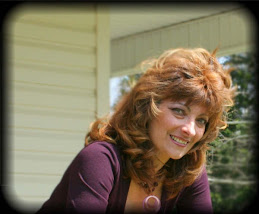 This baby monkey has nothing to do with today's post. I just love monkeys! I could watch the chimps at the zoo all day long. Sometimes they make more sense than my kids.
This baby monkey has nothing to do with today's post. I just love monkeys! I could watch the chimps at the zoo all day long. Sometimes they make more sense than my kids.Wednesday, December 30, 2009
Top Mistakes in Fiction Writing
 This baby monkey has nothing to do with today's post. I just love monkeys! I could watch the chimps at the zoo all day long. Sometimes they make more sense than my kids.
This baby monkey has nothing to do with today's post. I just love monkeys! I could watch the chimps at the zoo all day long. Sometimes they make more sense than my kids.Monday, December 28, 2009
Where Do I Submit?

Wednesday, December 23, 2009
Merry Christmas

Sunday, December 20, 2009
So You Think You Want to Write a Novel...

Sunday, December 6, 2009
The Writer's Toolbox

Thursday, December 3, 2009
Vote for Me!
http://christianfictiononlinemagazine.com/best_multicultural.html
.
Wednesday, December 2, 2009
What is Voice?
If you work hard at your writing for a while, you will hear a term you may not fully grasp. You may hear an editor, agent, or another writer refer to a author's "voice." What are they talking about?
In literature, voice refers to the way a writer expresses thoughts on the page. Just as most audible voices sound a bit different, so do the ways in which we express our ideas in written form. Read enough, and soon you can pick out your favorite authors by the way they write. The pace of their phrasing, the word choices, that twist of humor in unexpected places. Any avid reader could instantly tell the difference between the writing styles of John Grisham and Sue Grafton. You wouldn't confuse Ted Dekker with Debbie Macomber either. Each has his or her own unique style that fans come to expect when they pick up a book with that name on the cover.
Every writer has a voice and one challenge of beginning authors is to find that unique voice inside and write from it consistently. I am to the stage in my fiction writing where I can tell when I'm writing "in voice" and when I'm just slapping words on the page. Just as an opera singer must practice diligently to always call up that voice when she needs to. So authors have to practice it, and it can take awhile.
First we mimic other writers, which is a great way to learn to write. But even the greatest mimic can never reproduce another's voice, so don't worry that you're not being unique. Imitation is a great way to learn, but don't fear breaking away and trying it on your own. With enough practice, your own voice will come through in your writing.
My agent, Rachelle Gardener, had an excellent post on her blog which goes into much greater detail. For more study, check out this link. http://cba-ramblings.blogspot.com/search/label/Voice



